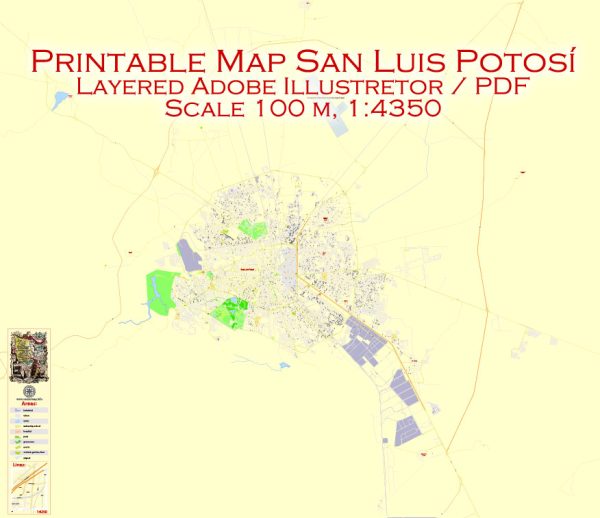San Luis Potosi, a state located in central Mexico, has a diverse agricultural landscape due to its varied geography and climate. The state’s agriculture is influenced by its semi-arid and mountainous terrain, which affects the types of crops that can be grown. Here is a brief description of agriculture in San Luis Potosi:
- Crops: San Luis Potosi produces a wide variety of crops, including corn (maize), wheat, barley, oats, sorghum, and beans. Corn is a staple food in the region and is grown throughout the state. Sorghum and wheat are also important crops, particularly in the northern plains.
- Livestock: Livestock farming is a significant part of the agricultural sector in the state. Cattle, goats, and sheep are raised for meat and dairy production. The state also has a growing poultry industry.
- Agave: Agave farming is an important agricultural activity in San Luis Potosi, particularly in the arid and semi-arid regions. Agave plants are cultivated for the production of mezcal, a traditional alcoholic beverage.
- Fruits and Vegetables: Fruits like citrus, papaya, and guava are cultivated in parts of the state. Vegetable farming, including tomatoes, chilies, and squash, is also practiced, especially in the more temperate and fertile areas.
- Coffee: Coffee production is an emerging sector in the state, primarily in the highland regions with suitable altitudes and climates.
- Agro-industry: San Luis Potosi has a growing agro-industrial sector. Food processing and packaging facilities play a crucial role in adding value to agricultural products, such as meat, dairy, and processed foods.
- Challenges: Like many other agricultural regions, San Luis Potosi faces challenges such as water scarcity and the need for sustainable farming practices to combat soil erosion and desertification. Efforts are being made to modernize and improve irrigation techniques to optimize water usage.
- Economic Impact: Agriculture is an important part of the state’s economy, providing employment for a significant portion of the population and contributing to both local and national food supply. It also plays a role in preserving traditional farming practices and cultural heritage.
San Luis Potosi’s agriculture reflects the state’s unique geography and the adaptation of farming practices to the semi-arid and mountainous landscapes. The state’s agricultural sector continues to evolve, with efforts to improve productivity and sustainability while preserving its cultural and culinary traditions.


 Author: Kirill Shrayber, Ph.D. FRGS
Author: Kirill Shrayber, Ph.D. FRGS